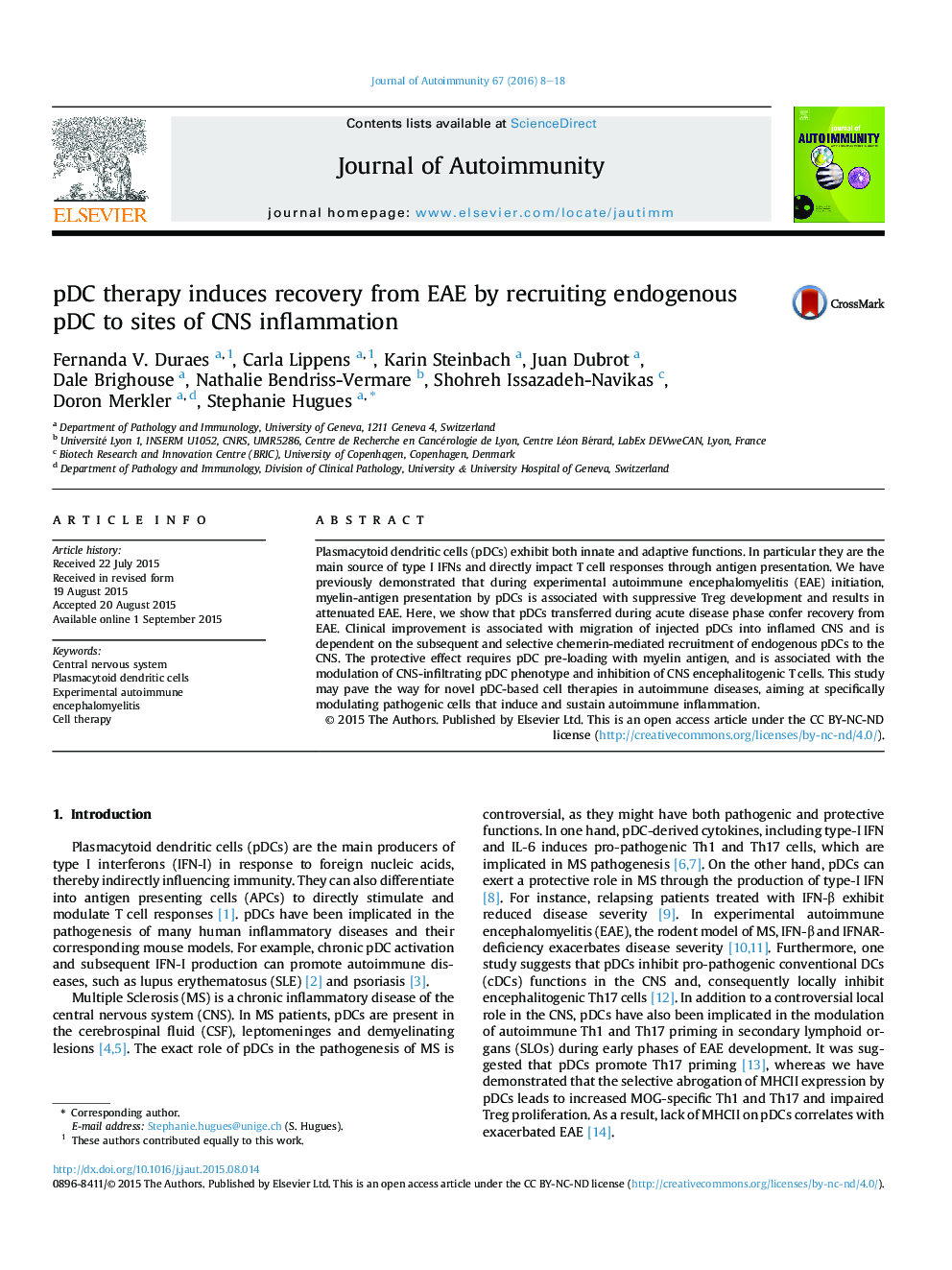| Article ID | Journal | Published Year | Pages | File Type |
|---|---|---|---|---|
| 6119177 | Journal of Autoimmunity | 2016 | 11 Pages |
Abstract
Plasmacytoid dendritic cells (pDCs) exhibit both innate and adaptive functions. In particular they are the main source of type I IFNs and directly impact T cell responses through antigen presentation. We have previously demonstrated that during experimental autoimmune encephalomyelitis (EAE) initiation, myelin-antigen presentation by pDCs is associated with suppressive Treg development and results in attenuated EAE. Here, we show that pDCs transferred during acute disease phase confer recovery from EAE. Clinical improvement is associated with migration of injected pDCs into inflamed CNS and is dependent on the subsequent and selective chemerin-mediated recruitment of endogenous pDCs to the CNS. The protective effect requires pDC pre-loading with myelin antigen, and is associated with the modulation of CNS-infiltrating pDC phenotype and inhibition of CNS encephalitogenic T cells. This study may pave the way for novel pDC-based cell therapies in autoimmune diseases, aiming at specifically modulating pathogenic cells that induce and sustain autoimmune inflammation.
Keywords
Related Topics
Life Sciences
Immunology and Microbiology
Immunology
Authors
Fernanda V. Duraes, Carla Lippens, Karin Steinbach, Juan Dubrot, Dale Brighouse, Nathalie Bendriss-Vermare, Shohreh Issazadeh-Navikas, Doron Merkler, Stephanie Hugues,
